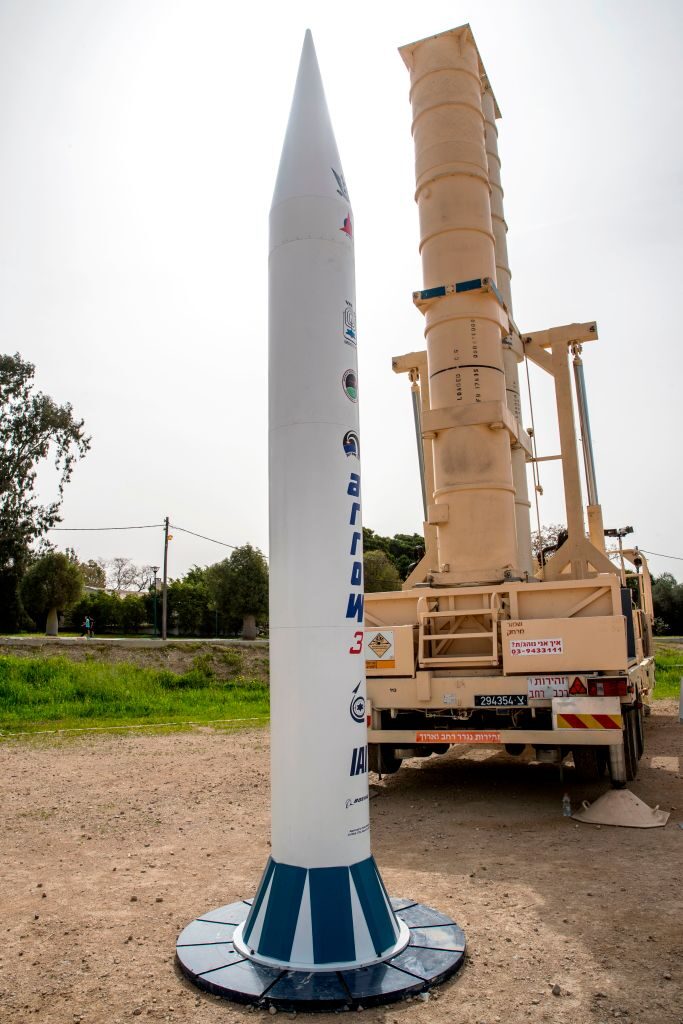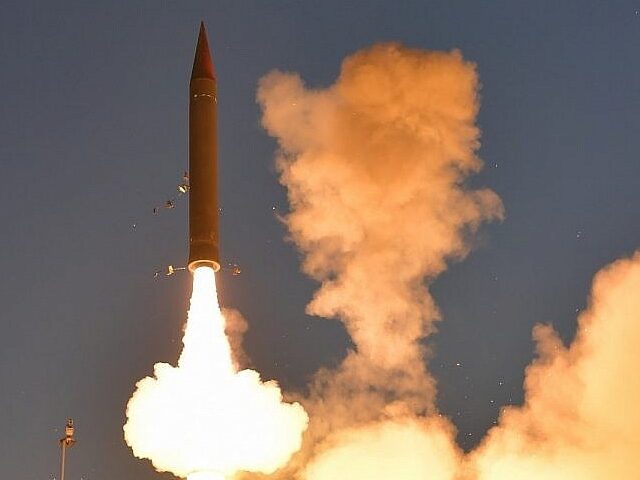The Israel Defense Forces (IDF) announced Saturday a long-range rocket fired by Hamas terrorists at the southern city of Eilat was intercepted by the Arrow air defense system, a new anti-missile system designed to be more effective against long-range, high-altitude threats than the venerable U.S.-made Patriot system.
The IDF reported Arrow’s first interception of the Hamas war on Thursday. In that instance, a ballistic missile believed to have been launched by the Iran-backed Houthi insurgents of Yemen was intercepted over the Red Sea. On the same day, an Israeli F-35 fighter shot down a cruise missile that was targeting the city, also apparently launched from Yemen.
Saturday’s interception occurred over the Negev desert. The IDF said the inbound weapon was launched from the Gaza Strip.

File/An Israel’s Arrow 3 ballistic missile interceptor is exposed during a joint Israeli-US military exercise “Juniper Cobra” at the Hatzor Airforce Base on March 8, 2018. (JACK GUEZ/AFP via Getty Images)
Hamas claims it attacked with an Ayyash-250 rocket, a weapon with a nominal range of 250 miles. The Ayyash-250 is among the longest-range weapons in the Hamas arsenal. According to the IDF, Hamas has used Ayyash rockets several times during the war, but none of its launches have cause injuries or damage yet.
Hamas has launched several deliberate attacks against civilian targets in Eilat since the beginning of the war, and the Houthis have attacked the city with both missiles and drones. Eilat is a beachfront resort city with a busy port, and an underwater nature preserve.
The Arrow was developed jointly by Israel and the U.S. Missile Defense Agency. It was designed to provide a layer of long range, high-altitude protection on top of the famed Iron Dome and David’s Sling defense systems. The Arrow is capable of intercepting ballistic missiles outside of Earth’s atmosphere.
The U.S. approved a $3.5 billion sale of Arrow-3 launchers to Germany in August, with delivery expected to begin in 2025. Several other countries are reportedly interested in purchasing the system, possibly to provide enhanced protection against Russian missiles in the wake of the Ukraine invasion.

COMMENTS
Please let us know if you're having issues with commenting.